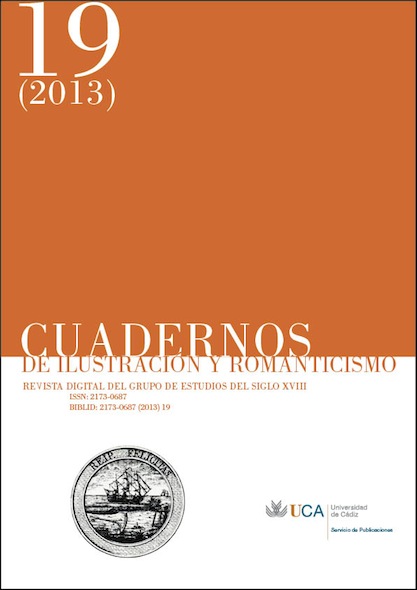The Eighteenth Century and the invention of the human nature (Moratín on the labyrinth of the lights)

DOI
https://doi.org/10.25267/Cuad_Ilus_Romant.2013.i19.04Info
Abstract
An analysis of the philosophical and moral basis of the theatrical reform raised by authors such as Jovellanos or Moratín, regarding to the developments in contemporary European thought on literary theory and theater is performed in this work. We analyze the transformations of broad involvement in dramatic conception as a political element of social control but also as a strategy for moral education of the people, from an eminently bourgeois point of view in
opposition and contrast to the parameters of the strong Spanish dramatic baroque tradition. That is, the theater as a social product and the reform of Moratín as a mirror of social changes and the economic and the political rise of a new bourgeoisie.
Keywords
Downloads
How to Cite
License

This work is licensed under a Creative Commons Attribution-NonCommercial-NoDerivatives 4.0 International License.
The papers published in this journal are the property of Cuadernos de Ilustración y Romanticismo: the source must be cited whenever they are used.
The authors retain the copyright © and grant the journal the right to publish. They may host their work in the final published version on personal websites or websites intended for scientific dissemination, provided that they indicate the source.






